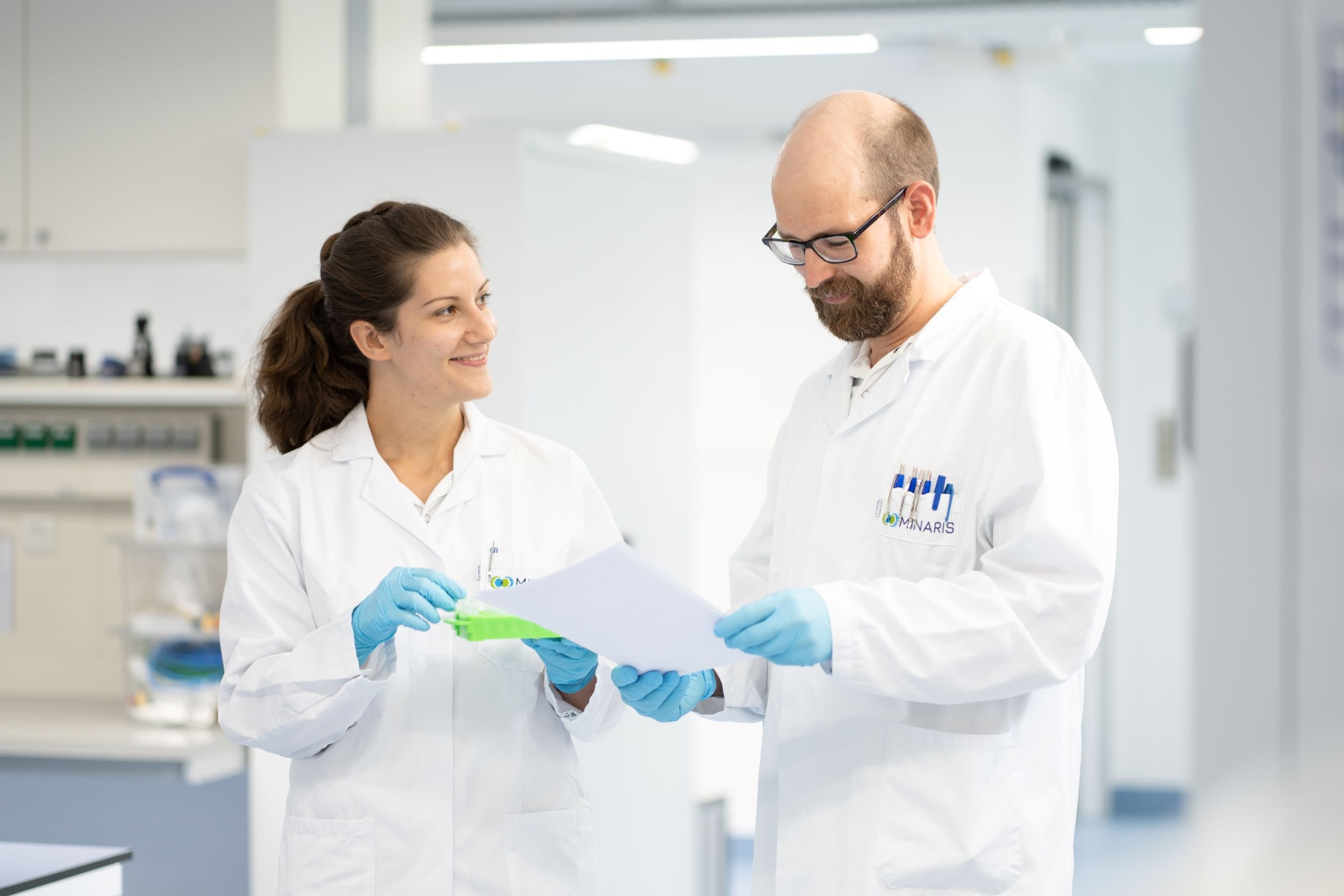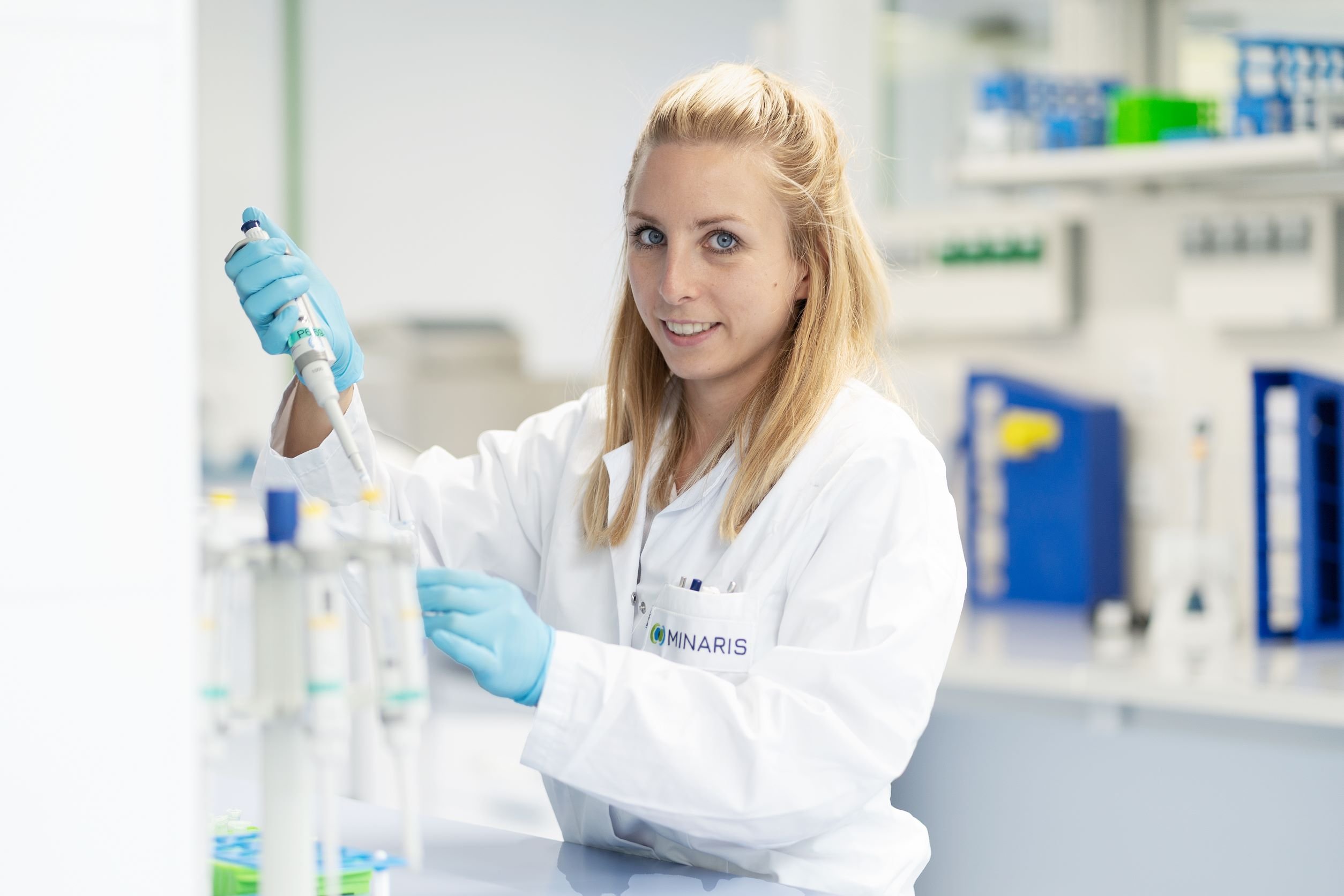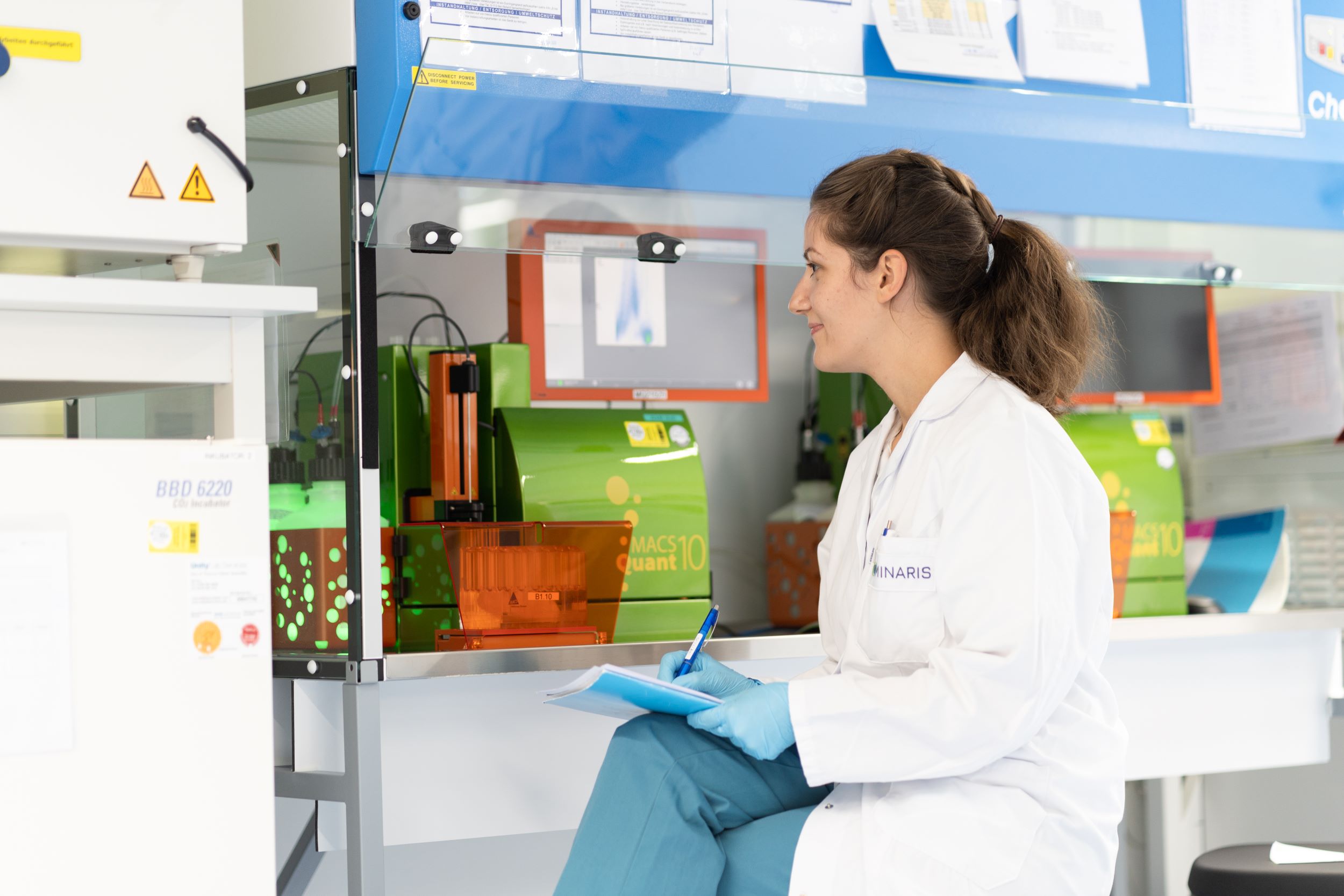Advanced Therapies, LLC and Minaris Regenerative Medicine are now combined!
Get to know the NEW Minaris Advanced Therapies. Learn More
In the manufacture of cell therapy products, the independent quality control system is a key element that ensures the required level of quality and safety of the finished cell and gene therapy. Minaris Regenerative Medicine has experience in developing a comprehensive control strategy outlined in product specific sampling plans to confirm the identity, purity, potency, and safety of your cell product.

The control strategy for cell and gene therapies also includes test methods for in-process controls and release samples with acceptance criteria and final product specifications, as well as release criteria for starting and raw materials and intermediates. We apply phase-appropriate ICH Q2-based validation strategies and perform required stability studies. Our dedicated teams offer guideline-compliant transfer strategies for analytical methods as well as in-house development and validation activities.


Services may differ in different Minaris regions.
Stability testing of drug products according to ICH Q1 guidelines: